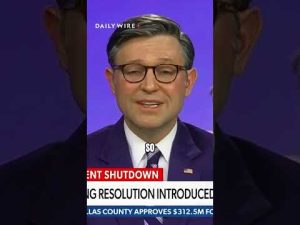In a world where political theatrics often outshine reality, there’s a startling yet side-splitting moment that exposes the delicate artifice of charisma—or lack thereof—in modern politics. Rewind to the aftermath of the 2024 election, where former Vice President Kamala Harris found herself in a bit of a pickle. A clip emerged that painted a peculiar picture of her much-touted phone conversation skills, or rather, the absence of them. You see, it turns out that instead of chatting away with a voter, Harris was caught talking to her own reflection, phone camera app in full view. The faux pas illuminated a rather curious trait: the ability to fabricate interactions that profoundly impress nobody.
Fast forward to a more recent public appearance at a Los Angeles Lakers game, where one could imagine the warm embrace of a supportive California crowd. Alas, the reception was as chilly as a forgotten beverage left in a deep freezer. Sitting far from the coveted courtside, Kamala Harris was more in the company of nosebleed seats than adoring fans. Her presence barely registered with the spectators, a scene almost too surreal to believe. One might think a former VP at such an event would elicit cheers, but instead, Harris was met with overwhelming apathy—a quiet testament to her waning influence.
In this odd hustle through obscurity, the unveiling of her on the Jumbotron brought not applause but an uncomfortable silence. Attendees seemed blissfully unaware or humorously indifferent, treating her appearance as if it were a routine stop on a monotonous tour. The imagery of Harris resolutely navigating the aisles, seeking refuge amidst the disinterested crowd, begs the question: where did all the fanfare go? The vibrant figures in the stands didn’t even spare a glance, affirming the stark contrast between Harris’s self-perception and her public reception.
Onlookers with a penchant for irony would find comic relief in Harris’s every misstep as her attempts to connect falter like a classic slapstick routine. It’s the kind of scenario that leaves one pondering if Harris had anticipated a grand return to her home turf only to be met with indifference akin to that of an ordinary patron. Even the comedians trailing courtside weren’t the type to extend courtesies of laughter or applause, spotlighting just how far removed Harris has become from the adulation of her so-called support base.
Amidst all this, the defining takeaway is rather straightforward: whether it be awkward phone calls or ill-fated public appearances, the same energy prevails. It’s a curious blend of overlooked celebrity and political misadventure, where American politics once again shows its peculiar flair for producing improbable tales. In the end, Harris’s tumble from political grace serves as both a comedic chapter and a cautionary tale about the fleeting nature of political popularity in the grand arena of public opinion.



